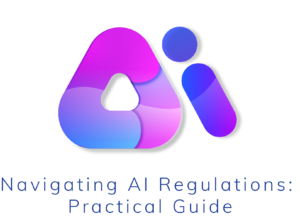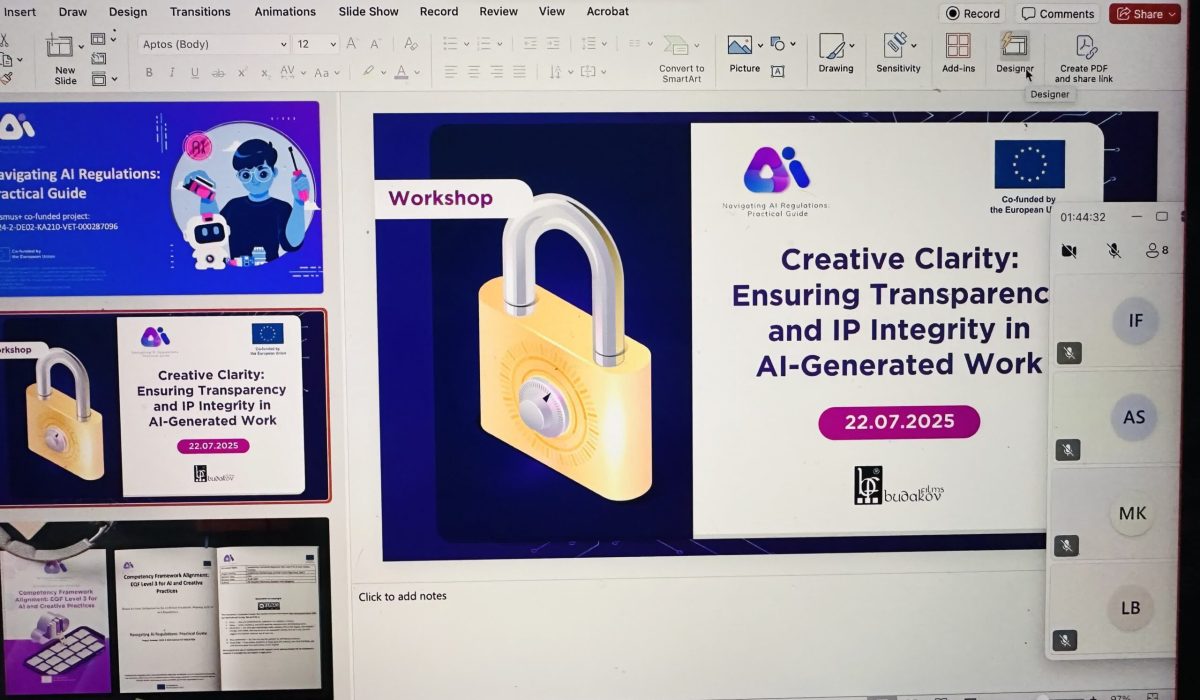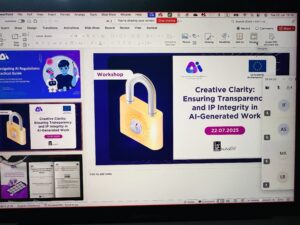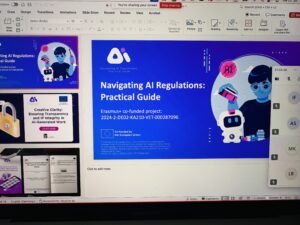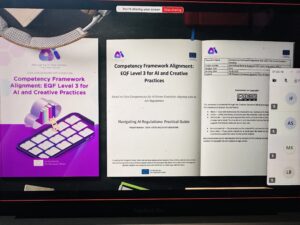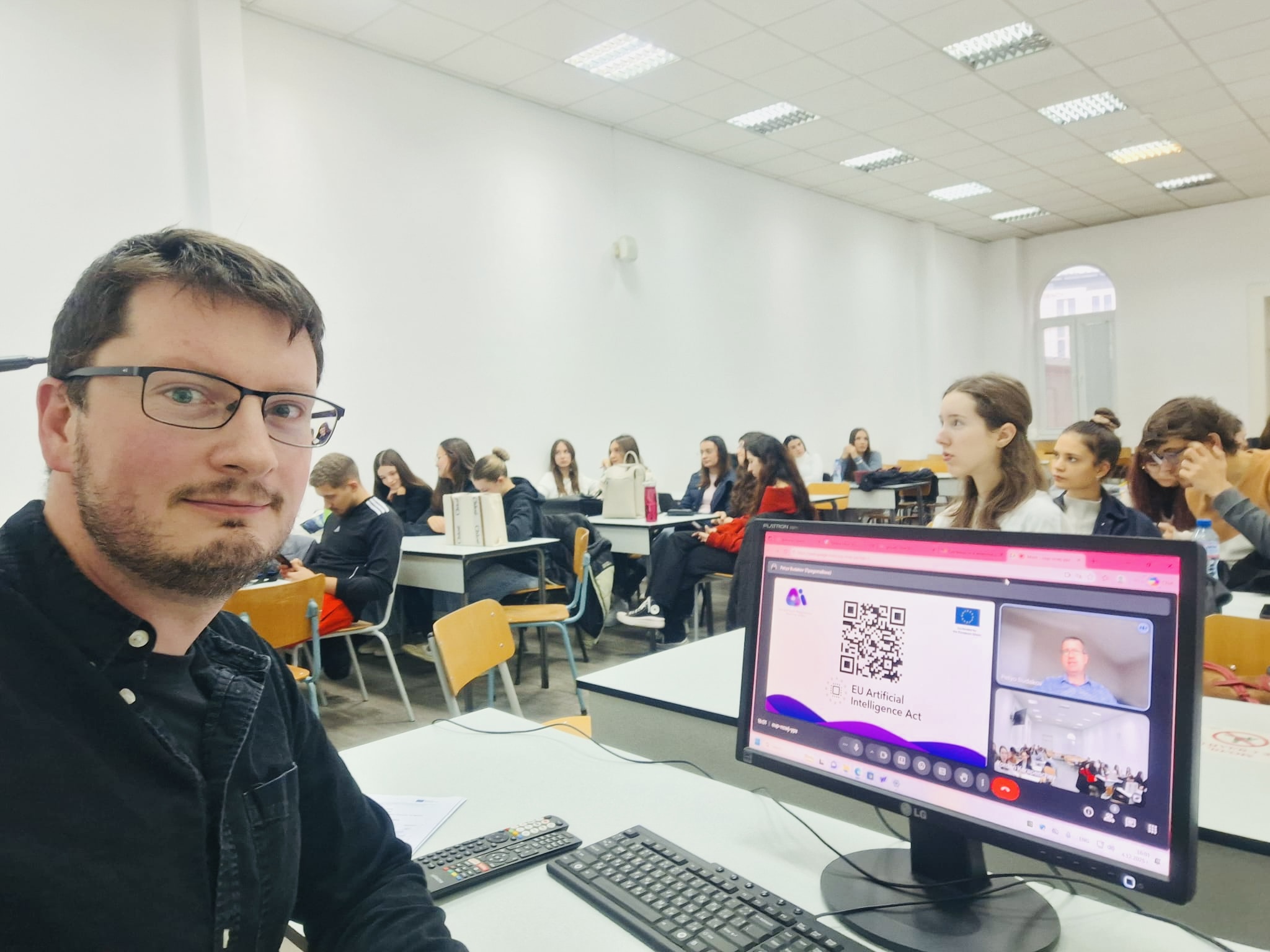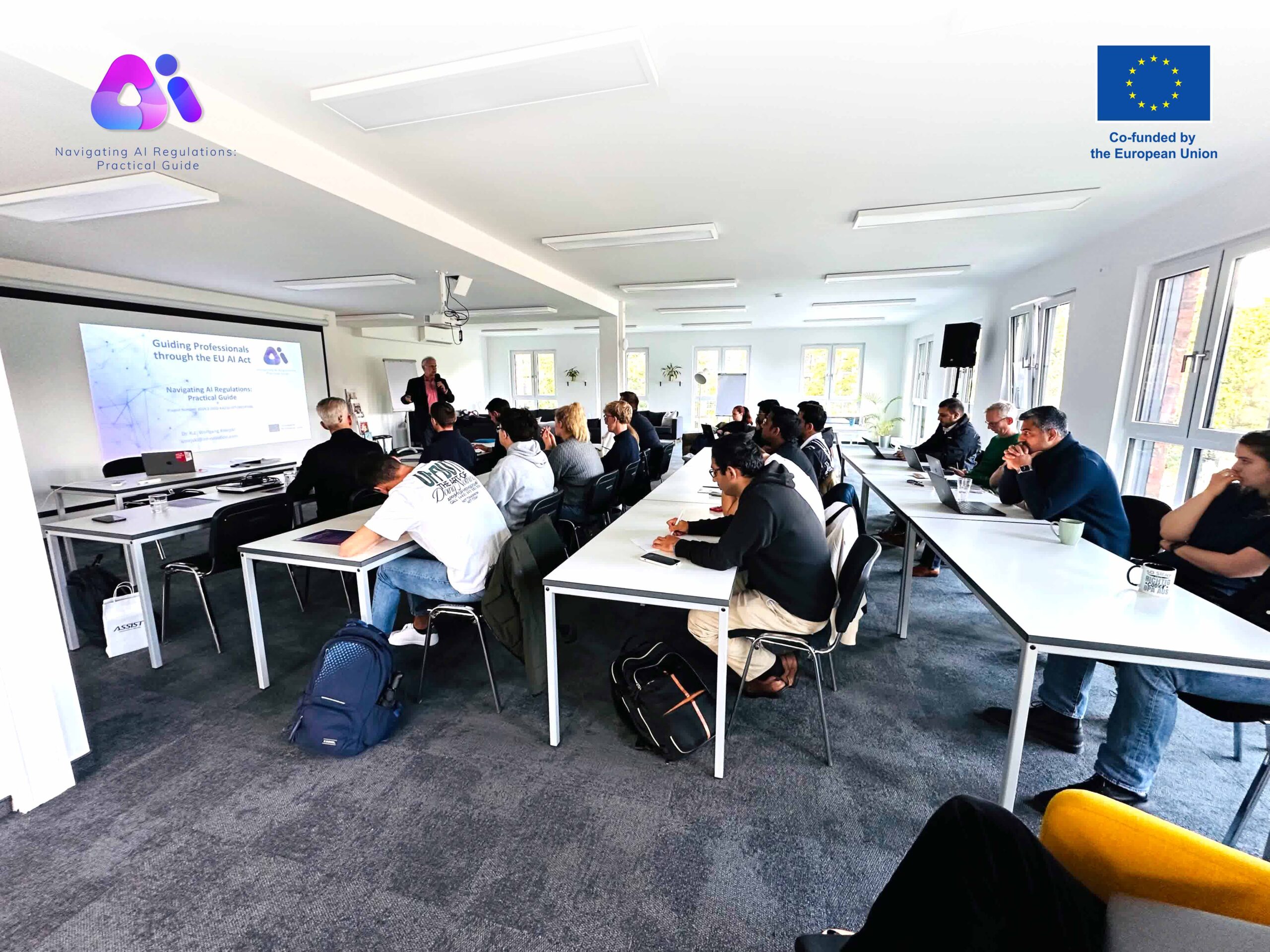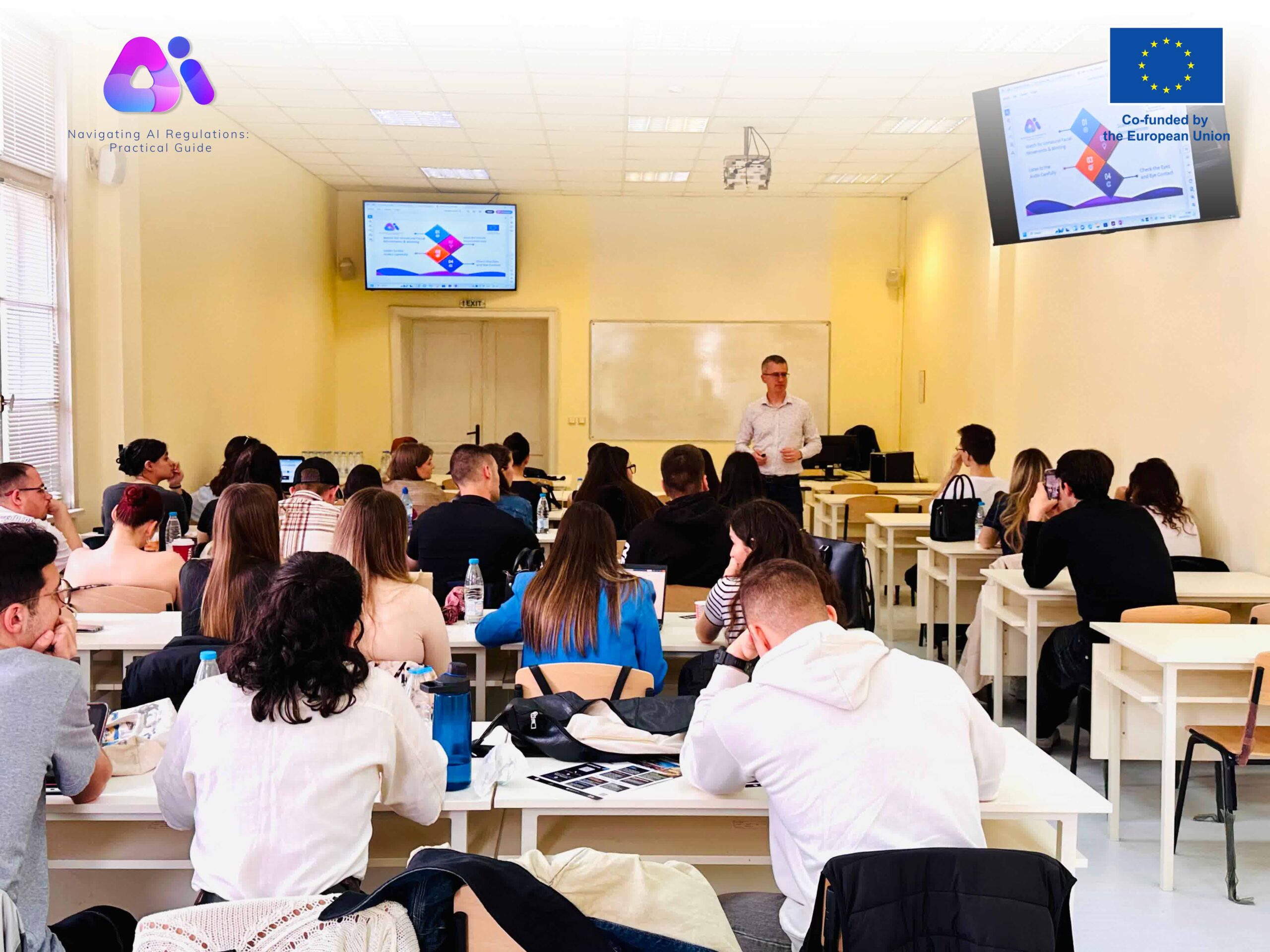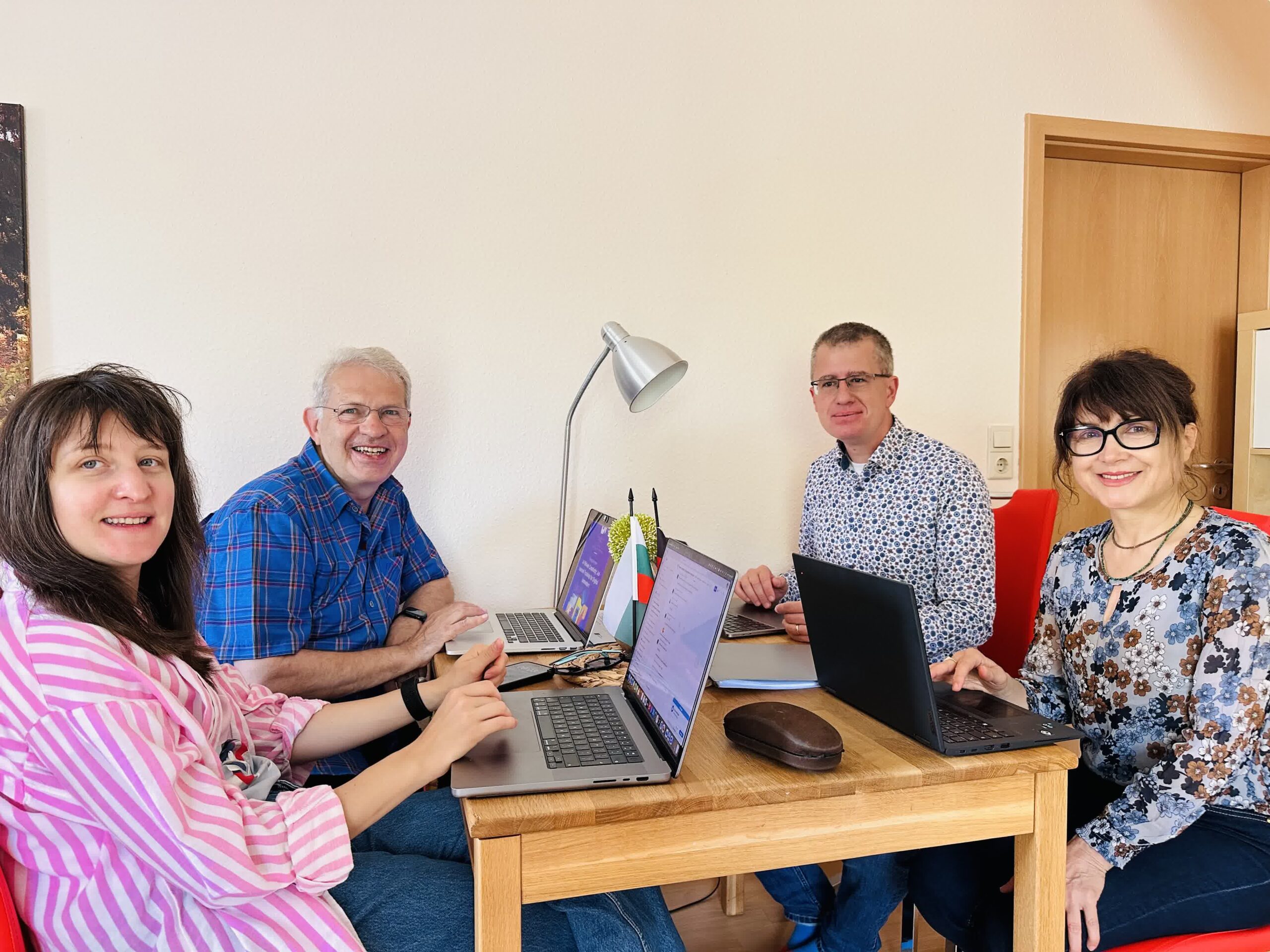On July 22nd, Budakov Films led a transformative “Train the Trainers” workshop under the Erasmus+ project Navigating AI Regulations: Practical Guide (Project Number: 2024-2-DE02-KA210-VET-000287096).
The workshop, entitled “Creative Clarity: Ensuring Transparency and IP Integrity in AI-Generated Work,” brought together 12 seasoned professionals from the Cultural and Creative Sectors (CCS) for an intensive 120-minute training session.
The purpose of this high-impact workshop was to provide future trainers with the hands-on experience and pedagogical tools needed to implement a new training programme aimed at equipping creative professionals with the knowledge and competencies required to navigate the evolving landscape of AI regulations, compliance, and intellectual property rights.
A Targeted Focus on Critical AI-IP Intersections
The workshop specifically addressed three of the core training modules developed under the Navigating AI project:
Module 2: AI and Intellectual Property Creation
Module 3: IP Risks and Infringements in AI-Generated Content
Module 4: Ethical and Legal Compliance in Creative AI Use
Each module was presented through an interactive format that included case studies, policy discussions, and concrete examples of AI tools currently being used within the creative industries. Participants engaged with materials covering both the opportunities AI offers for enhancing creative output and the legal and ethical pitfalls it may inadvertently introduce.
From Theory to Practice: Group Exercises and Case-Based Learning
Following an introduction to the full suite of training modules and related video content, participants were assigned to small groups to work on two practice-based exercises. These exercises simulated real-world scenarios, challenging participants to apply AI tools in IP-sensitive creative processes while ensuring regulatory compliance.
This hands-on approach not only strengthened participants’ technical understanding of AI tools but also deepened their awareness of risk mitigation strategies, particularly in the context of copyright law, data governance, and ethical content generation.
Moderated by Industry Experts
The session was expertly moderated by Prof. Dr. Petyo Budakov, a leading academic and creative strategist in digital education and media, alongside Keti Tserovska, an expert in design and media literacy. Their combined expertise ensured a balanced mix of academic rigour and practical insight, offering a strong foundation for future trainers to build upon.
Gathering Insight for Future Impact
The workshop concluded with a structured feedback session, allowing participants to reflect on the training content, share insights from their group work, and suggest enhancements to the delivery of future sessions. This feedback is being used to fine-tune the project’s training tools and ensure that they remain both accessible and aligned with the real needs of professionals in the cultural and creative sectors.
Long-Term Value and Impact
This Train the Trainers workshop marks a key milestone in the Navigating AI project’s mission: to create a sustainable, EU-wide knowledge ecosystem that supports CCS professionals in leveraging artificial intelligence responsibly and creatively. By empowering trainers at this early stage, the project ensures a multiplier effect — reaching more entrepreneurs, creators, and small enterprises across Europe who need to understand the risks and potential of AI in their work.
The implications are far-reaching. From protecting artistic integrity and original ideas to ensuring creators do not unintentionally infringe on others’ rights, the training delivered by Budakov Films stands as a critical tool in building a legally compliant, ethically sound, and future-ready creative industry.
Funded by the European Union. Views and opinions expressed are however those of the author(s) only and do not necessarily reflect those of the European Union or the European Education and Culture Executive Agency (EACEA). Neither the European Union nor EACEA can be held responsible for them.
Project No: 2024-2-DE02-KA210-VET-000287096
